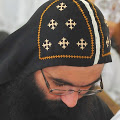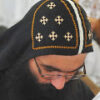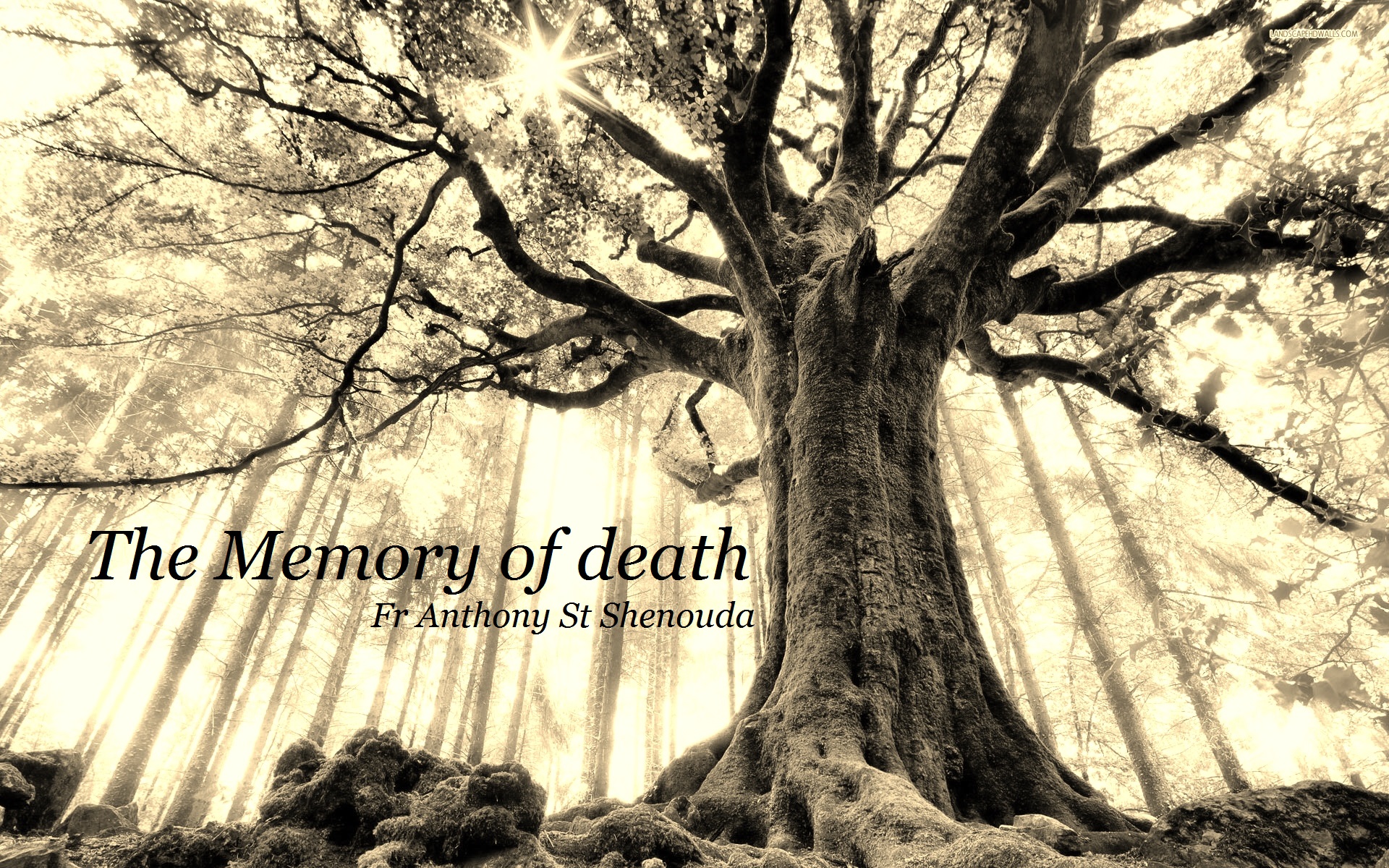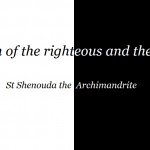Every good and beloved soul… when it has been released by death from the body with which it was united… immediately experiences the joy and pleasure which it shall enjoy in full measure in the future… and though immediately after death the enjoyment is small, after when it shall again receive It’s celestial body at …
Every good and beloved soul… when it has been released by death from the body with which it was united… immediately experiences the joy and pleasure which it shall enjoy in full measure in the future… and though immediately after death the enjoyment is small, after when it shall again receive It’s celestial body at the resurrection of the dead, it shall enjoy blessings in perfect measure.”
St Gregory the Theologian
Let us boldly plunge into our subject directly, without detours. It is time to approach this with courage. It is the memory of death that we will talk about. The memory of death (and I am speaking of our own death rather than a loved one’s death) has two aspects to it, one edifying aspect and the other is a joyful one. In both cases death should not be a gloomy subject that would stop us from enjoying the present life which is a gift of God.
“Remember the end of your life and you will never sin” Sirach 7:36 The memory of death is beneficial in a variety of ways, because it restrains and prevents us from sin. The Desert Fathers used the exercise of the memory of death in order to keep themselves ready at all times. Once a young monk went to his elder asking him “how long do I have to be ready before I die,” the elder answered “only one day before you die” the young man left the elder very happy about the elder’s response; but another question came to his mind so he went back and asked the elder “when will I die” the elder replied “I do not know my son, therefore be ready every day as if you will die this day.” Bishop Sarabamoun the bishop of St Bishoy’s Monastery advices his monks to fight against bad thoughts by the exercise of the memory of death.
The reason why the memory of death is so edifying and is able to drive away bad thoughts is that it is a point in our life when we are the most honest with ourselves no matter how long we have deceived our selves or others. The devil knowing the edifying character of death has for a long time deceived people. In the old kingdoms kings thought of themselves as immortal. When this lie was no longer effective as kings “actually died” he came up with a new idea of reincarnation to water down the edifying factor of death “if you cannot do it this time try again next time.”
It is for this reason our Holy Church helps us practice the edifying practice of remembrance of death every day in the 12th hour prayer of the Agpia “Behold I am about to stand before the just judge… rise up from your laziness and implore the saviour in repentance.”
“Maran Atha” 1Cor 16:22 The other aspect of death which we usually overlook is the Joy of Eternal life. We usually perceive death as an end to life rather than a beginning to an eternal life. In Fr Tadros Malaty’s book which he titled “The Gift of Death” he says that “Death is the beginning of a joyful journey into heaven and the funerary prayer is a celebration of the start of this journey.”
In the rite of consecration of monks, the funerary prayer is prayed over them and monks practice the exercise of the memory of death throughout their life, yet they are the happiest people on earth. Not only monks but the early church also used to greet one another with the greeting “Maran Atha” or the Lord is coming. It is the sweet anticipation to see Jesus who healed them, fed them, and forgave their sins, that brought them this joy. It is the longing to enjoy these joyful experiences—in perfect measure– with the Lord Eternally.
Join Us: Sign Up Today!
Tags:












